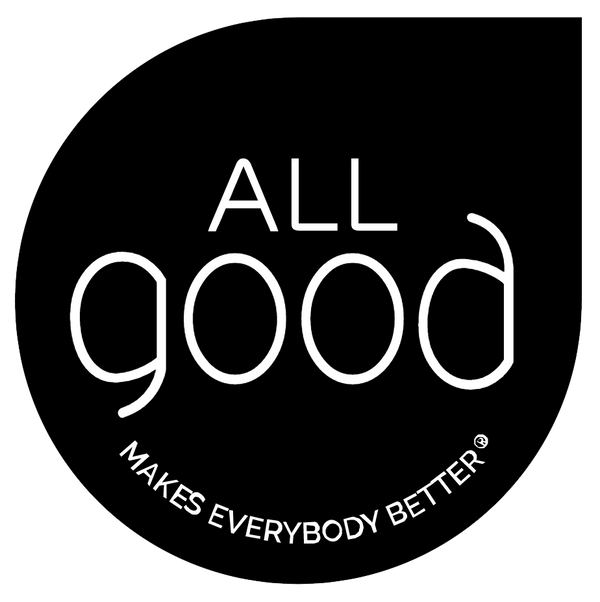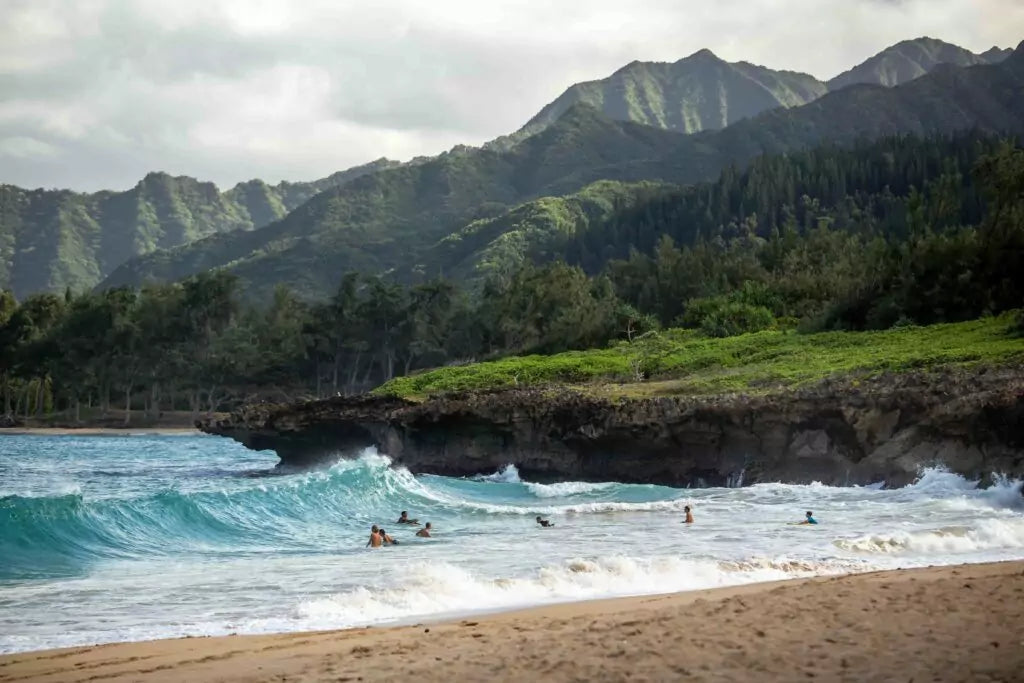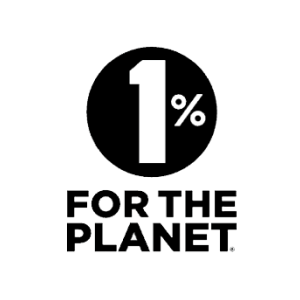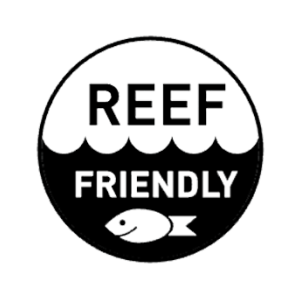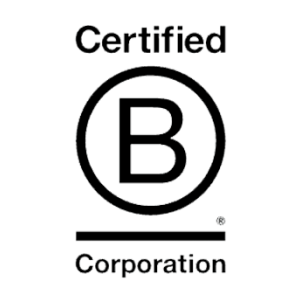BIG NEWS – Say “aloha” to human health and protecting our oceans, and “goodbye” to nasty chemicals. The Big Island of Hawaii is officially banning the sale and distribution of chemical sunscreens, enabling reef-safe alternatives!
Safer mineral sunscreens should be the obvious choice for people everywhere but it takes visionary governments like the Island of Hawaii to lead the change. With the passage of Bill 167 today, the Hawaiian legislature is putting people and the planet first by protecting the delicate coral reefs, as well as the health of its residents and visitors.
This expansion of the law follows Maui, Hawaii’s second largest island, who has already banned the sale of over 80 types of harmful sunscreens, blazing trails for the Big Island which is now following suit also with a ban on all of the worst offending chemicals in traditional sunscreen.
Why is reef friendly sunscreen important?
An estimated 14,000 tons of sunscreen end up in the ocean each year. The vast majority of that sunscreen rinse-off is composed of dangerous chemicals that injure all sorts of ocean life, including our valuable coral reefs.
Discontinuing the use of chemical sunscreen is good for our bodies, and also supports a plentiful supply of oxygen and protection from the elements. Many people don’t realize that coral reefs are more than just a tourist draw or photo op, they are a major key to planetary sustainability of life.
Key Benefits of coral reefs that make them worth protecting:
- Reefs produce the majority of Earth’s oxygen – It might surprise you to learn that up to 70% of the earth’s oxygen is produced by reefs compared to just 30% from trees. Chemical sunscreens and other man-made toxins in the environment contribute significantly to coral bleaching (or “reef death”) on reefs in oceans worldwide.
- Reefs provide front line storm defenses to our coastlines – Coral reefs also support an incredible underwater ecosystem and their very existence defends our coastlines against the worst effects of storms and hurricanes.

Chemical sunscreens’ negative effect on our bodies
If damage to our reefs and ocean wasn’t enough to make you take notice, understanding the real threats to the health of ourselves and vulnerable children from a lifetime of exposure to these toxins hopefully will. A study released in 2019 found that it took just one day of use for several chemical sunscreen ingredients to enter the bloodstream, at levels far beyond the recommended FDA established threshold. Not only do they enter the bloodstream, but they can stay in the body for extended periods of time.
How can you spot a chemical sunscreen without reading the label?
Many companies now claim that they make “clean sunscreens” but often will still contain 2-3 ingredients that are toxic to both you AND the coral reefs. Clean sunscreens block the sun using physical barriers. They utilize the mechanisms of active ingredients like non-nano zinc oxide and iron oxides to provide protection. These types of sunscreens may take a little more work to blend in on your skin, but that is an indicator that they are not chemically creating sun protection. If your sunscreen blends and absorbs too easily into your skin, you may be dealing with chemicals you wouldn’t want in your body or in the ocean.
Sunscreen Ingredients That Are Harmful To Reefs
The compounds in these ingredients, preservatives, and additives are toxic to humans and coral reefs. If any one of these ingredients is listed in a sunscreen, it is NOT considered reef safe, reef friendly, or – you guessed it – safe for you.
-
“The Nasty Eight”
- Oxybenzone
- Octinoxate
- Octocrylene
- PABA (Aminobenzoic Acid)
- Enzacamene
- Octisalate
- Homosalate
- Avobenzone
-
Preservatives & Additives
- Methyl Paraben
- Ethyl Paraben
- Propyl Paraben
- Butyl Paraben
- Benzyl Paraben
- Phthalates
- Triclosan
- Microbeads (plastic)
- Phenoxyethanol
Note: Oxybenzone, one of the most prevalent chemical sunscreen ingredients, deserves a special call out for its exceptional levels of damage to both coral reefs and humans; you can learn more about public enemy number one here.
At All Good we are passionate about creating products that are safe for everybody so we exclusively use the only UV protection ingredients Generally Regarded as Safe (GRAS) by the FDA.
How All Good helped shape clean sunscreen policy
All Good has been making reef friendly non nano zinc sunscreens since 2008. After attending a Coral Reef Symposium in Honolulu in 2016, our founder Caroline Duell became even more eager to put a stop to the dangerous human health issues relating to chemical sunscreen absorption into the body, as well as the coral bleaching that is happening from chemical sunscreen secretions into our oceans.
Caroline was driven to make an impact and realized she could do more with others who shared her passions to protect reefs and people. She contacted and collaborated with a dozen likeminded mineral sunscreen brands and founded the Safe Sunscreen Council. As spokesperson of the Council, she and the members work together to raise public awareness about the damage of sunscreen ingredients and alternatives.
Caroline, All Good and other organizations first worked with scientists – like Dr. Craig Downs – and grassroots organizations to outline Reef Friendly criteria to help explain scientific jargon to the general public. Next, All Good and its partners held events, hosted sit-in education sessions, set up sunscreen stations, and asked athletes, influencers, professors, consumers, and even kids to all play a part. All Good then created the Reef Friendly Pledge and collected thousands of signatures to submit to Hawaiian legislators in favor of banning chemical sunscreen.
Pledges were submitted to legislators, and in 2018, Hawaii made headlines as the first #ReefFriendly state, by banning sunscreens containing the two toxic chemicals of Oxybenzone and Octinoxate. All Good supported on-the-ground organizations like Friends of Hanauma Bay, Kohala Foundation, Sustainable Coastlines Hawaii, and other Hawaii-based organizations also assisted the passing of this ban – a move that was then followed by the Pacific Island nation of Palau. Since then, other locations like Aruba and the city of Key West, FL have followed suit, and the FDA was urged to investigate the toxicity of these chemicals. They found that some of these toxic ingredients enter the bloodstream at levels far beyond the recommended FDA-established threshold.
How you can help defend our reefs and environment
The passing of this current bill on The Big Island will protect their coral reefs, as well as their citizens and tourists from unnecessary harmful sunscreen ingredients. It goes further than the statewide ban on only Oxybenzone and Octinoxate, and adds an additional six dangerous chemicals.
When we take action and make decisions that support the health of our planet, we are also supporting the health of its people. We can all celebrate today as a big step toward a happier, healthier planet and population, but the work doesn’t end there. Make sure your friends and family understand the implications of chemicals in our environment and on our bodies. Have conversations to help others understand that better alternatives exist. Each one of us is a voice of hope for ways to do better and we believe if we fight for it, eventually everything we put out into this world has a chance to be All Good.
Sources
https://oceanservice.noaa.gov/facts/coral_protect.html
https://bigislandnow.com/2017/05/19/reefs-at-risk-the-effects-of-sunscreen-and-hawai%CA%BBis-reefs/
https://www.fda.gov/news-events/fda-voices/shedding-more-light-sunscreen-absorption
